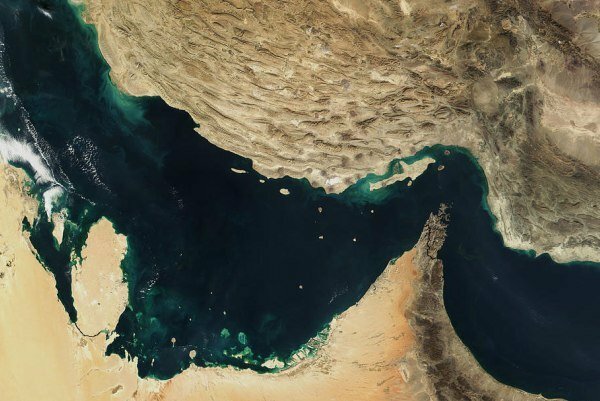But at least many Americans are pushing back against one major medium of ill reputation for beating war drums, the New York Times. And this comes at a time where, if the US were to launch a military attack on Iran, it seems that aside from the Saudis, and the UAE and Israelis, and maybe the Brits, it would be alone and therefore condemned widely for doing so.
Last week the NYT editorial board published a weak and unsupported piece (with many omissions) about Iran to which almost 500 readers wrote comments before the comments section at the newspaper was closed. There was not a single response supportive of war on Iran and even of US efforts to continue pressuring Iran with sanctions.
Granted that the readership of the NYT does not comprise “average” people but rather the far better educated, and these readers seem to have dropped any illusions that the US is a force for good in the world and they readers harbor accurate notions of conspiracies, false flags and alliances with arguably bad actors such as Israel and Saudi Arabia.
This is important because in the lead up to the Iraq War in 2002-03, this was not the overwhelming reaction, or at least not so evident. Cited among the comments were references to the Gulf of Tonkin false flag that sparked the war on Vietnam and especially the false data about Iraqi WMD.
One reader from my home state, North Carolina, wrote for example: “Trump declared war on Iran and flaunted the rest of the world when it withdrew from the Iran nuclear agreement under pressure from Israel and Saudi Arabia.”
There is anyway not a shred of hard evidence Iran attacked any tankers in or near the Persian Gulf. Maybe the time has finally arrived where the US and its “allies” can’t fool anyone any longer with falsehoods, as it did with the Gulf of Tonkin decades ago, with claims of Iraqi WMD, with false claims against Libya and Serbia, and as it has done on numerous occasions with Syria. The mere fact that Iranians literally rescued the sailors on one of the tankers hit in the Gulf of Oman ought to be proof enough that Iran almost certainly did not attack the ships.
No one in the mainstream US media has made the connection that the escalation against Iran has been pushed primarily by Israel supporters, but even Trump has admitted that casino magnate Sheldon Adelson, Trump’s top Zionist donor (and we know Trump loves “money” above all else) advised him to hire hawk John Bolton. No question the tanker attacks are getting milked by the Zionists and the Saudis, who have stood between the US and better relations with Iran that eventually would have evolved and been based US maintenance of the JCPOA.
As for Secretary of State Mike Pompeo, it appears he’s playing some kind of game and he even thinks it is funny. He admitted with a laugh back in April that as chief of the CIA the organization lied, cheated and stole, but this has been par for the course in US foreign policy for decades, just as it has been for Israel and the Saudis, too. Pompeo does not seem to care whether a new war in the Middle East occurs, given his Christian “evangelical” beliefs about some supernatural outcomes regarding some absurd return of Jesus.
But of course the good news, if there is any at this time, is that the American public is not nearly as complacent and lazy as it has been, and more alert to what’s been going on now and for decades. In any event, Trump’s tenure in the White House has been marked by one crisis after another, and almost all the crises have been sparked by aggression of various forms against other countries, whether economic or military.
But as one observer who at least tries to be informed about the current dangers, it does seem possibly wise to suggest that’s Iran’s leaders not threaten or in fact chip away at components of the still standing JCPOA agreement by warning it is going to ramp up uranium enrichment unless Europeans, in particular, abide by their alleged commitments under the nuclear agreement. Doesn’t this only or primarily fuel further false justifications for the war postures of the Trump Administration precisely at a time when world opinion in general, and even the opinions of many Americans, seem to be decidedly on Iran’s side and against further conflicts in the Middle East?
Even if enhanced uranium enrichment were adopted by Iran, it’s not likely such would prove to be a deterrence to Iran’s enemies in the same way that North Korea, ALREADY HAVING the capacity to produce and launch nuclear weapons, is actually a deterrence to US aggression. If Iran, say, were to push too far towards weapons grade uranium, even so far as 20 or 50 percent, it’s not hard to imagine the US and its “allies” would argue that Iran is headed towards making its own nuclear deterrence, and use that as a pretext to try to destroy ALL of Iran’s achievements in nuclear technology for energy generation well before there was any chance Iran could (in theory anyway) produce nuclear weapons.
To date over the past year, Iran has managed correctly to negotiate a horrific minefield of economic oppression which anyway is not permanent. Even if for a while Iran cannot sell its resources, it remains a rich country in so many respects. What is far less permanent worldwide is positive US standing and “empire”. And the same can be said for the barbaric Saudis and the apartheid loving Zionists.
MNA/TT


























Your Comment